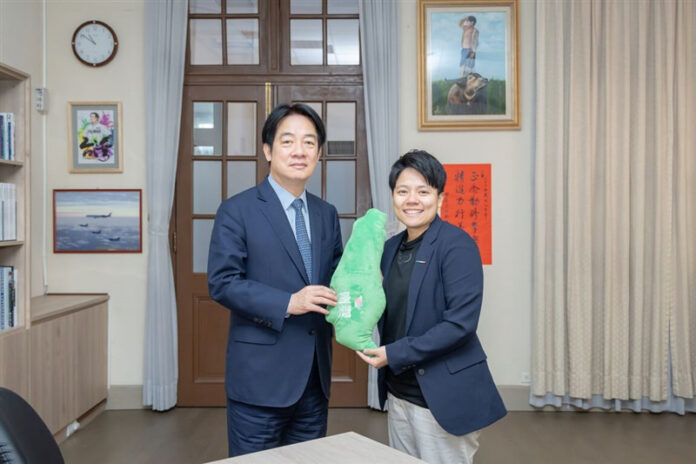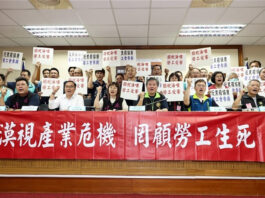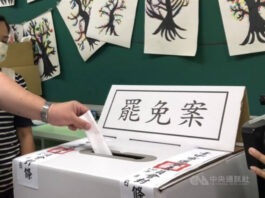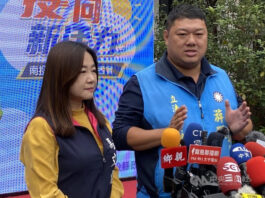In a candid and ideologically firm interview on Mindi World News, President Lai Ching-te ruled out any possibility that cross-Taiwan Strait dialogue with China could be built on cooperation with Taiwan’s opposition parties. Lai’s remarks underscore the Democratic Progressive Party’s (DPP) core belief that Taiwan must engage with China on the foundation of sovereign equality, not via compromise through opposition channels that tend to lean toward Beijing’s “One China principle.”
A Deep Divide on Cross-Strait Policy
Lai pointedly addressed the philosophical and strategic divide between the ruling DPP and opposition parties like the Kuomintang (KMT) and the Taiwan People’s Party (TPP). He emphasized that the DPP upholds the belief that Taiwan and China are separate entities, with Taiwan’s future to be determined solely by its 23 million people—a fundamental rejection of Beijing’s sovereignty claims.
This position diverges sharply from the KMT’s long-standing advocacy of the “1992 Consensus”—a formulation that implies both sides of the Taiwan Strait belong to “one China,” though each may interpret it differently. While Beijing sees this as a path to eventual unification, the DPP sees it as a political trap that delegitimizes Taiwan’s democratic identity.
Symbolic vs. Practical Diplomacy
President Lai dismissed the notion that engaging opposition parties—some of which maintain ties with Beijing-friendly think tanks or municipal officials—could become a reliable or meaningful pathway to dialogue. “That route compromises Taiwan’s sovereignty and leaves the future of our nation in ambiguous, vulnerable hands,” he said.
He also referred to former Taipei Mayor Ko Wen-je’s infamous remark that “both sides are one family”—a line that aligned too closely with Beijing’s unification narrative. Ko, who later founded the TPP, resigned as party chairman in 2024 amid corruption allegations, adding further complications to the opposition’s credibility on foreign policy matters.
The ‘Four Pillars of Peace’ Strategy
Instead of relying on opposition-mediated engagement, Lai reiterated his administration’s “Four Pillars of Peace” strategy, which includes:
- Strong National Defense: Continuing investment in asymmetric warfare and domestic defense production.
- Economic Resilience: Reducing dependency on China-bound trade and reinforcing semiconductor leadership.
- Democratic Alliances: Deepening ties with like-minded democracies such as the U.S., Japan, EU, and Australia.
- Principled Leadership: Navigating cross-strait tensions with strategic clarity and moral consistency.
This strategy echoes the cautious yet firm approach of Lai’s predecessor Tsai Ing-wen, under whom Taiwan made significant diplomatic gains and grew international visibility without formal recognition from most countries.
Beijing’s Strategy “Backfiring”
Lai went further to criticize China’s increasing military incursions, cyberattacks, and psychological warfare as tactics not of negotiation but of coercion. He claimed these actions have failed to isolate Taiwan and instead helped it gain unprecedented support globally—particularly from the U.S., which continues to recalibrate its Indo-Pacific posture in Taiwan’s favor.
Lai posed a rhetorical challenge to Beijing: “Is this really what China wants?”—urging leaders in Beijing to reassess whether pressure-based diplomacy is truly advancing their strategic goals or instead alienating regional and global stakeholders.
Reciprocal U.S. Tariffs: Room for Diplomacy
On the topic of U.S. “reciprocal” tariffs, Lai confirmed that negotiations are underway to ensure that any imposed duties do not exceed 10%. He reassured the public that Taiwan is seeking a balanced trade relationship with Washington while safeguarding its export competitiveness, especially in the semiconductor sector—Taiwan’s economic backbone.
FAQs
Why did President Lai reject cooperation with opposition parties for China dialogue?
Because the DPP views such cooperation as a compromise of Taiwan’s sovereignty. Opposition parties often lean toward the “One China” framework, which the DPP opposes.
What is the 1992 Consensus?
It is a tacit agreement from 1992 where both China and Taiwan acknowledged “one China” but with different interpretations. The DPP sees it as outdated and dangerous.
Is Taiwan still open to talking with China?
Yes, but only on the condition of equality and mutual respect, not subordination or one-sided preconditions.
How is the U.S. involved in Taiwan’s security?
The U.S. supports Taiwan through arms sales, high-level visits, and regional deterrence efforts under its Indo-Pacific strategy.
What about the trade war and tariffs with the U.S.?
Lai says discussions are ongoing to cap Taiwan-bound tariffs at 10% to protect Taiwan’s industries.



